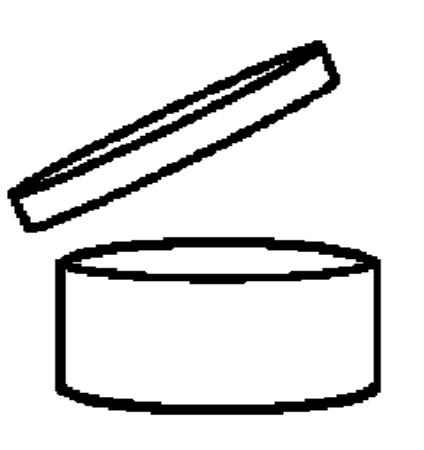Technical regulation on cosmetic products
The definition established by the Ukrainian Technical regulation on cosmetic products:
cosmetic product – any substance or mixture intended to be applied to various external parts of the human body (epidermis, hair, nails, lips, external genital organs), teeth, or the mucous membranes of the oral cavity, solely or primarily for the purpose of cleaning them, perfuming them, changing their appearance, protecting them, keeping them in good condition, or correcting body odors.
The system of technical regulation of cosmetic products in Ukraine is undergoing active harmonization with EU legislation.
Starting from October 1, 2023, the regulation of cosmetic products significantly changed: the sanitary-epidemiological assessment was canceled, and sanitary-epidemiological conclusions (sanitary certificates or SES conclusions) were excluded from the list of authorization (permissive) documents.
For a while cosmetic products are regulated by the Law “On general safety of non-food products” and other applicable legal acts.
From August 3, 2024, the Technical regulation on cosmetic products, approved by the Resolution of the Cabinet of Ministers of Ukraine dated January 20, 2021, No. 65, came into force. A two-year transitional period is provided until August 3, 2026, during which the placing on the market of cosmetic products cannot be prohibited or restricted due to non-compliance with the requirements of the Technical regulation.
Thus, regulatory requirements for cosmetic products can be divided into the following periods:
- From October 1, 2023 – the sanitary-hygienic certification is canceled, and cosmetic products are regulated by the Law of Ukraine “On general safety of non-food products” and applicable legislation.
- From August 3, 2024 – cosmetic products introduced to the market may comply either with the requirements of the Technical regulation or the Law “On general safety of non-food products” and applicable legislation.
- From August 3, 2026 – all cosmetic products introduced to the market must comply with the requirements of the Technical regulation.
|
We provide professional services of market authorization (conformity assessment) of cosmetic products in Ukraine. We have deep knowledge of Ukrainian and European legislation, experience, and necessary resources. Our services:
Our team has an excellent knowledge of the legislation, is fluent in English, possesses broad experience, and will be able to answer all questions. Cooperation with us will grant you high-quality professional service and fast results. |
Technical regulation on cosmetic products
Cosmetic products introduced into circulation from August 3, 2026, must comply with the requirements of the Technical regulation on cosmetic products and other relevant regulatory legal acts in the field of technical regulation.
The regulation covers all cosmetic products placed on the market, including those provided for free, as well as products intended for professional use. The regulation has two objectives: to ensure the functioning of the market and to provide a high level of protection for human health.
The Technical Regulation on Cosmetic Products is based on Regulation (EC) No 1223/2009 of November 30, 2009. However, since Ukraine is not an EU member state, manufacturers must ensure that all national requirements are met before placing a product on the market. These include appointing a responsible person in Ukraine, filling a cosmetic product safety report (CPSR) and cosmetic product information file (PIF), developing labeling and ensuring compliance with language requirements, and product notification at the portal of the Ministry of Health of Ukraine.
Other applicable technical regulations
Cosmetic products may be subject to several technical regulations simultaneously if such regulations are applied. The most commonly applicable regulations for cosmetic products include:
- Technical regulation on the safety of chemical products (UA REACH), approved by the Resolution of Cabinet of Ministers of Ukraine No. 847 dated July 23, 2024, and effective from January 26, 2025.
- Technical regulation on aerosol dispensers, approved by the Resolution of Cabinet of Ministers of Ukraine No. 154 dated February 21, 2023.
- Technical regulation on certain products packaged by weight and volume in prepackaged form, approved by the Resolution of Cabinet of Ministers of Ukraine No. 1193 dated December 16, 2015.
- Technical regulation on toy safety, approved by the Resolution of Cabinet of Ministers of Ukraine No. 151 dated February 28, 2015.
Additionally, chemical raw materials used for the production of cosmetic products are subject to the Technical regulation on the classification, labeling, and packaging of chemical products (UA CLP), approved by the Resolution of Cabinet of Ministers of Ukraine No. 539 dated May 10, 2024, which also becomes effective on January 26, 2025.
If a cosmetic product falls under the scope of multiple regulations, all applicable requirements must be fulfilled simultaneously.
Responsible person in Ukraine
The responsible person – is a legal or natural person, a resident of Ukraine, who is responsible for ensuring compliance with the requirements of the Technical Regulation. For imported products, the responsible person is the importer, while for domestically produced products, it is the resident manufacturer.
Both the importer and the manufacturer may delegate this function to a third party. The appointment of the responsible person is carried out in writing through a power of attorney issued by the manufacturer and consent from the responsible person.
The responsible person is responsible for compliance with requirements, including product composition, labeling information and instructions, GMP compliance of the manufacturer, safety assessment, notification (registration) on the competent authority’s portal, maintaining documentation accessible for market supervision authorities, post-market surveillance, and monitoring of adverse events.
In addition, the responsible person pays fines and complies with the orders of the market surveillance authority in cases where non-compliant or unsafe products are introduced into circulation.
The address of the responsible person must be indicated on the labeling of each cosmetic product.
|
We offer the service of the responsible person in Ukraine. We have excellent knowledge of Ukrainian legislation in technical regulation of cosmetic products, have a strong and experienced team, and a robust quality management system. Cooperation with us will facilitate your business:
|
Compliance with GMP requirements
According to point 21 of the Regulation, the production of cosmetic products must comply with Good Manufacturing Practices (GMP). The Product information file (PIF) must include a description of the manufacturing methods and a statement confirming the manufacturing’s compliance with GMP standards.
GMP for cosmetic products is a set of practical and organizational requirements that must be followed during the production process. These requirements aim to ensure product hygiene and safety, and involve controlling human, technical, and administrative factors.
The DSTU EN ISO 22716:2015 “Cosmetics. Good Manufacturing Practice (GMP). Guidelines on Good Manufacturing Practice”, which is identical to the international standard EN ISO 22716:2007, has been included in the list of harmonized standards. Compliance with this standard provides a presumption of conformity with the requirements of the Technical Regulation.
The DSTU EN ISO 22716 standard is a specialized standard developed for the cosmetic industry. It offers organizational and practical recommendations for managing human, technical, and administrative factors that influence product quality at each stage of the production process.
Cosmetic product information file
The Product Information File (PIF) is one of the mandatory requirements of the regulation, which must be completed before the product is placed on the Ukrainian market. Each cosmetic product must have its own documentation, which includes a description of the product, a cosmetic product safety report (which consists of two parts), a description of the manufacturing process and a declaration of GMP compliance, proof of the claimed efficacy, data on animal testing, primary and secondary labeling.
The documentation must be kept by the responsible person and accessible to competent authorities for at least 10 years after the product was last placed on the market. It must be available to the market surveillance authority and provided in a language acceptable to them upon request.
Notification
Before placing the cosmetic product on the market, the responsible person must notify the cosmetic product at the portal (electronic system) of the Ministry of Health of Ukraine.
The notification is submitted electronically and must contain the following:
- The category of the product, its name, or other identifying information;
- The name and address of the responsible person;
- The country of origin;
- Contact details of a person who can be reached if necessary;
- If applicable, the presence of nanomaterials and methods for their identification;
- The name and identifiers of substances (CAS numbers) or EC numbers for CRM substances;
- The product formulation framework for providing quick and appropriate medical assistance.
When placing the product on the market, the responsible person must submit a graphic file of the labeling to the competent authority, and if necessary, include a photo of the packaging.
If any information changes, the responsible person is required to promptly submit an updated notification.
Labeling requirements
Labeling of cosmetic products must include the necessary information in the Ukrainian language before placing them on the market. The information must be visible, legible, and indelible. It can be applied via a sticker, insert (leaflet), tag, or card.
Alongside the Ukrainian text, information in other languages may also be provided. The use of abbreviations or symbols is permitted.
Symbols for cosmetic product labeling:
|
|
|
|
| See information in accompanying materials |
The period after opening the package |
Minimum expiration date |
The labeling must comply with the documentation for the cosmetic product.
A graphic file of the package labeling, and, if necessary, a photo of the package, must be submitted (notified) to the competent authority when the cosmetic product is introduced into circulation in Ukraine.
Market surveillance
Cosmetic products are subject to state market surveillance, which is conducted at all stages of the product’s circulation: during customs clearance, in retail and storage premises, and at fairs or exhibitions. The responsible person is required to keep documentation for cosmetic products accessible and provide it upon request from the market surveillance authority.
The state body responsible for market surveillance is the State Service of Ukraine on Medicines and Drugs Control (SSUMDC or Derzhlikslujba). This authority conducts planned inspections according to the approved sectoral plan, as well as unplanned inspections based on consumer complaints, referrals from executive authorities, law enforcement agencies, and others.
In cases of non-compliance, the market surveillance authority may decide to restrict or prohibit sales, withdraw products from circulation, or recall them. Additionally, fines may be imposed on the distributor, importer, or responsible person.
Monitoring of adverse effects
If serious adverse effects are identified from the use of cosmetic products in Ukraine, the responsible person, distributor, end-user, and healthcare professional are required to immediately notify the state market surveillance authority of all serious adverse reactions (side effects), the name of the cosmetic product, or other identification details, as well as corrective actions taken.
Advertising
Advertising materials for cosmetic products, including product information and names, must not suggest that the product has characteristics or functions that it does not possess.
It is prohibited to claim that a cosmetic product has medicinal properties in advertising.
Legislation
Cosmetic products must comply not only with the Technical regulation on cosmetic products but also with all other applicable legislative acts. These include technical regulations in the chemical sector, laws on state market surveillance and control over non-food products, language legislation, measurement unit requirements, and other regulations.
We have compiled a list of key legislative acts we use in our daily work on our website.
We also pay close attention to EU legislation and professional advisory documents. In cases where national law does not provide clear guidance in a dispute, reference to relevant European documents can serve as a strong argument.
Our services
Cratia offers comprehensive regulatory support and assistance throughout all stages of placing cosmetic products on the Ukrainian market:
- Regulatory intelligence, consulting and feasibility study;
- Outsourcing of the Responsible person in Ukraine;
- Filling of the Product Information File (PIF);
- Filling of the Cosmetic Product Safety Report (CPSR) and Ukrainian safety assessor;
- Review and/or development of labeling, instructions, and advertising materials;
- Notification (registration) of the cosmetic product on the portal;
- Development of GMP according to ISO 22716;
- Compliance with UA CLP and UA REACH regulations;
- Compliance with the Technical regulation on aerosol dispensers;
- Legal and consulting support for manufacturers, responsible persons, or distributors (importers).
We possess the necessary knowledge and experience to conduct these tasks, and we are fluent in spoken and written English. We will manage and organize the process, help compile the necessary set of documents, and carry out the procedure within a short timeframe.
To start cooperation or to consult, you may contact us:
- by phone +38 044 361-48-28, +38 044 221-71-29,
- by e-mail info@cratia.ua,
- or arrange a meeting in our office.




